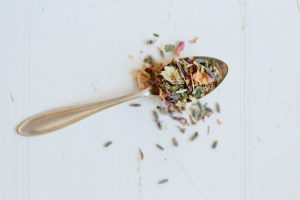The Naturopathic Co.

You're using an outdated browser. Please upgrade your browser to improve your experience.
Herbal medicine has been used with success for thousands of years across a variety of cultures and modalities, such as traditional Chinese medicine and Ayurvedic medicine.
The modern naturopath utilises herbal medicines to form part of a treatment plan, not only because they’re extremely effective, but also because they can be tailored to the individual.
Herbal preparations are available in a variety of forms including liquid extracts, tinctures, teas, powders, capsules and tablets. In reality, it’s not enough to simply compare liquid and solid dose preparations as a matter of physical form. The quality of the starting material, and the subsequent manufacturing method, are paramount in determining the therapeutic capacity of the final product.
Liquid herbs are widely used among herbal medicine practitioners and take the form of tinctures and liquid extracts. Perhaps the greatest advantage of liquid preparations is the flexibility they afford the practitioner in formulating specifically for the individual. Likewise, variability in dosage, is particularly useful when prescribing for children, and can be easily achieved with herbal medicine.
Taste can also be a limiting factor though to a large extent, because one large down-side to taking herbal medicines is the taste. Most people who have consumed herbal medicine will agree, they taste disgusting, but there are some things we can add to the herbal mix to improve or disguise the unpleasant taste.
In some instances the taste of the herb is beneficial in its own right. Despite the more recent discovery of bitter receptors throughout the digestive tract, tasting bitter herbs is still considered beneficial in stimulating digestive function by way of vagal nerve activation. Gentian (Gentiana lutea) is one of the key bitter herbs prescribed.
As part of the herbal preparation, we include prime moving herbs, which are herbs that are given greater weighting in regard to dose, because they are considered those that have the most direct action in alleviating symptoms or resolving the presenting complaint.
We also include adjuvant herbs, which are herbs that provide additional support to the prime moving herbs. Their actions are often tonifying or complementary to the prime moving herbs, and their effects may be exerted over a longer time frame.
Not all herbal medicines cause their effects by passing into the blood stream; some effects are due to direct effects on the digestive tissue or gut flora, which do not require the herb or its active constituents to pass across the small intestine.
There are different types of herbs that a naturopath will use for different conditions or health complaints. For example:
Emmenagogues are also known as uterine stimulants, and as such can increase the contractions of the uterus and promote the expulsion of the uterine contents.
Female tonics tonify and restore function to female reproductive system. They are indicated for low libido, reduced reproductive function, poor ovulation, menstrual cycle irregularities and infertility.
Galactagogues improve not only the quantity, but also the quality of breast milk. Galactagogues have a long history for promoting milk supply in lactating women.
Uterine tonics assist with normal uterine functions and normalise uterine actions. They improve the quality of the endometrial lining, increase the tone of the muscular wall and improve the overall strength of the uterus.
Hormone modulators are herbal medicines that can balance various hormones.
Demulcent or mucilaginous herbs soothe inflamed or irritated tissues. This class of herbs plays a role in healing, relieving the discomfort of irritated skin.
Astringent herbs dry and cause contraction of exposed tissue. The tannins in these herbs bind to the proteins on the skin or membranes causing a “tightening” of the tissue.
Vulnerary herbs are used to heal wounds. They work with and are similar to demulcents, astringents and anti-ulcer herbs.
Depurative herbs are a very traditional grouping with the early European herbalists referring to these herbs as ‘blood cleansers’.
Anti-pruritic herbs assist in the easing of itching skin (pruritis).
Herbs with an anti-fungal action inhibit fungal growth and assist in the prevention of further pain and inflammation associated with the fungal infection.
Anti-bacterial herbs will reduce the replication of bacteria both topically and internally. This is an important action since the skin is our first line of defence against invading organisms.
Anti-allergic herbs modulate the release of histamine from the mast cells.
Anti-viral herbs inhibit the replication of enveloped viruses and can prevent the discomfort and inflammation that is seen in viral infections.
As you can see, there is a broad scope for flexibility in prescribing herbal medicines for all kinds of health issues ranging from gastrointestinal health concerns, skin issues, hormone imbalances, respiratory problems, and even musculoskeletal pain.
If you are suffering from a chronic health condition and are ready to take action towards better health, schedule a time with your naturopath who will run a full health assessment and tailor a treatment prescription just for you.
Yvette is a qualified Melbourne-based Naturopath and Nutritionist, MINDD Practitioner, member of the Naturopaths and Herbalists Association of Australia, and Complementary Medicine Association. Yvette specialises in the treatment of conditions commonly affecting women and children, with a key interest in children’s digestive and neurological conditions, as well as women’s hormonal concerns, digestive issues, fatigue, anxiety, and skin concerns. Yvette consults in South Yarra, Melbourne, as well as Australia-wide via skype/zoom/phone. Book here.
Comments are closed.